ASU's living arboretum in the running for national award
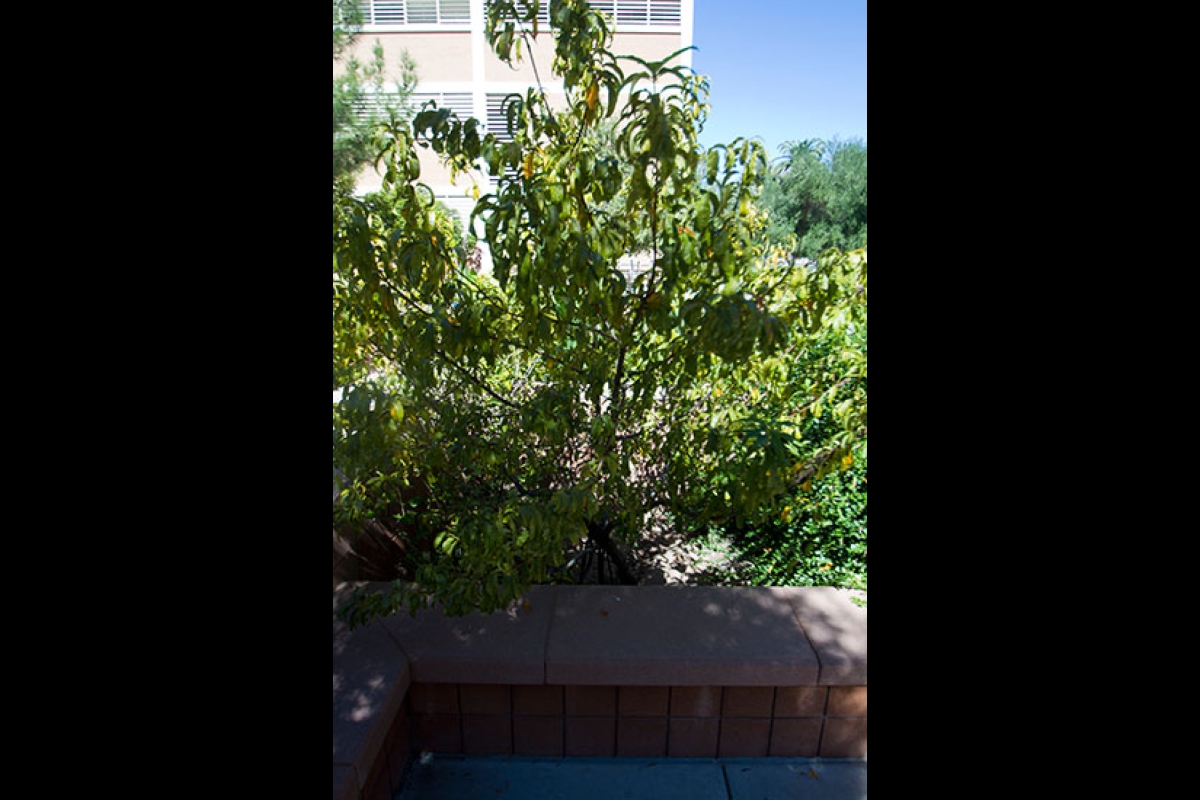
Arizona State University is competing for the 2014 Tree Campus USA award, which is sponsored by the Arbor Day Foundation to help “colleges and universities around the country establish and sustain healthy community forests."
By studying the trees, like this scarlet oak, students and faculty have learned how to better take care of them.
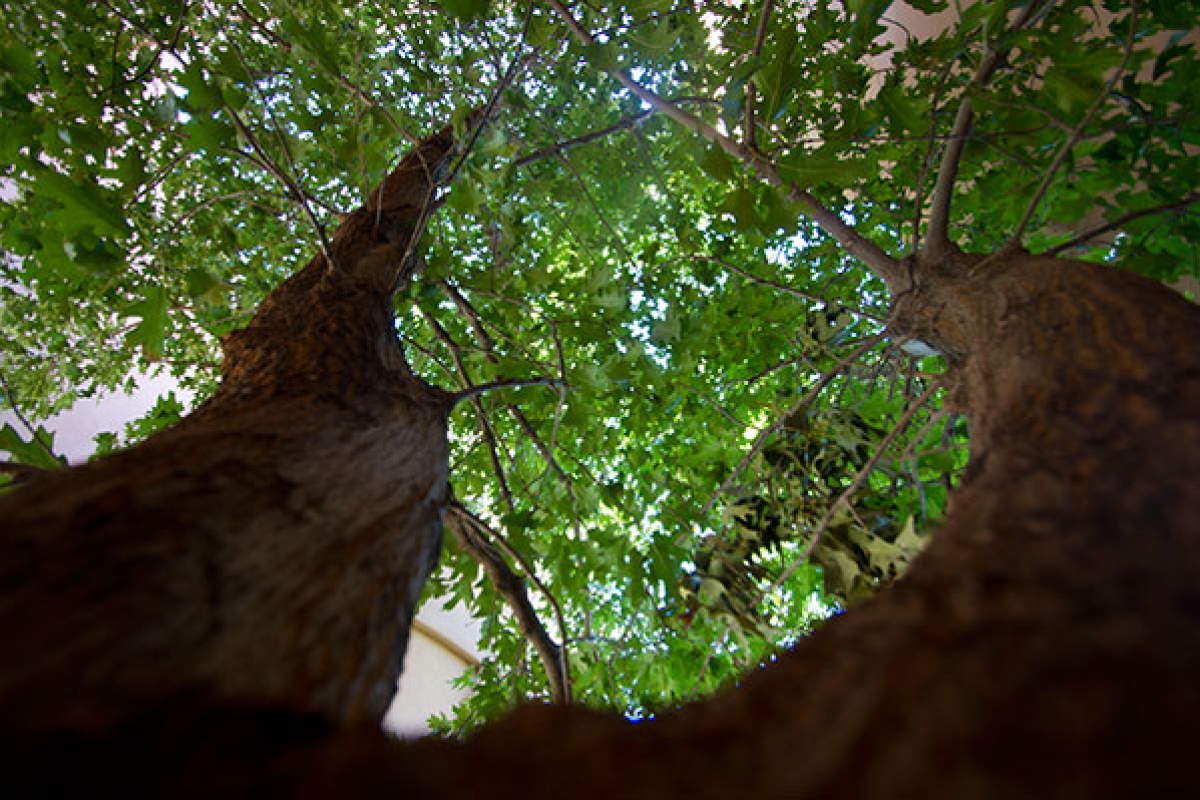
In 2008, ASU won the Tree Campus USA competition. The prize money was used to plant 100 trees around campus, including this peach tree – something you don’t normally think of thriving in the desert Southwest.
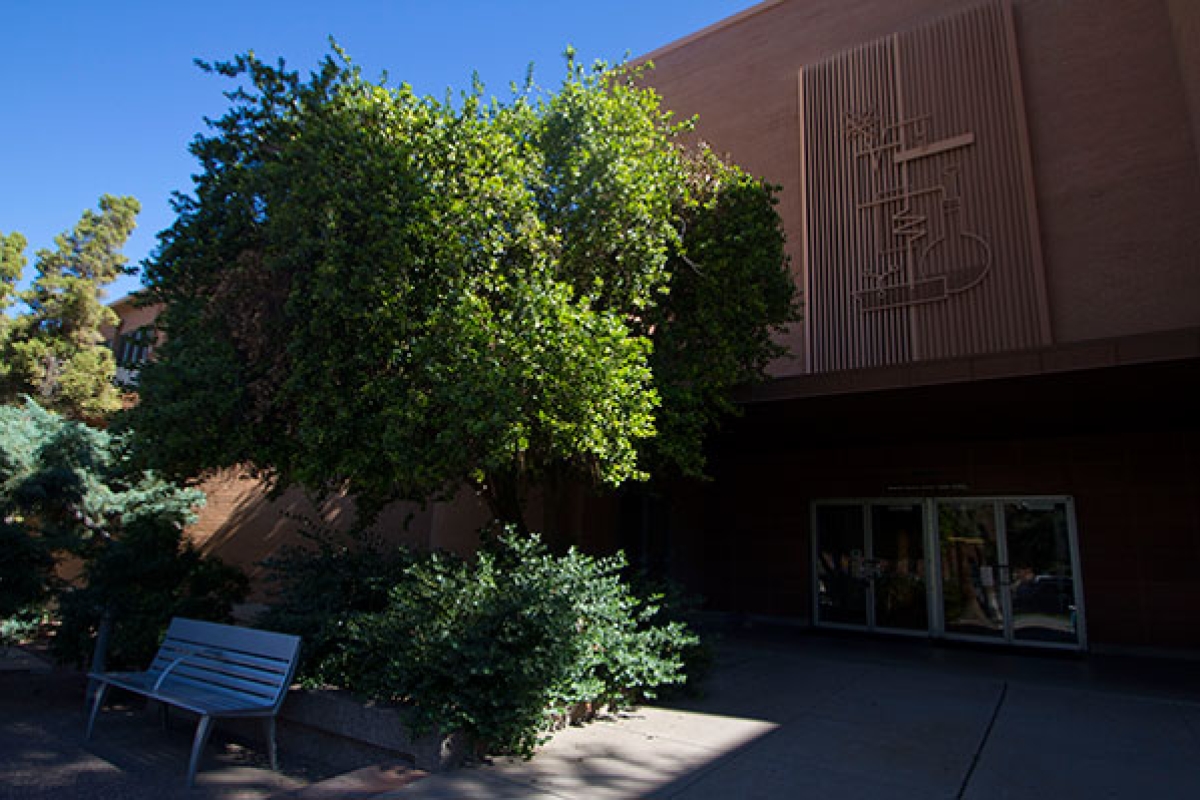
There are a variety of trees scattered across campus. One exotic example is the Chinese holly. It has grown to be one of the largest in the state.
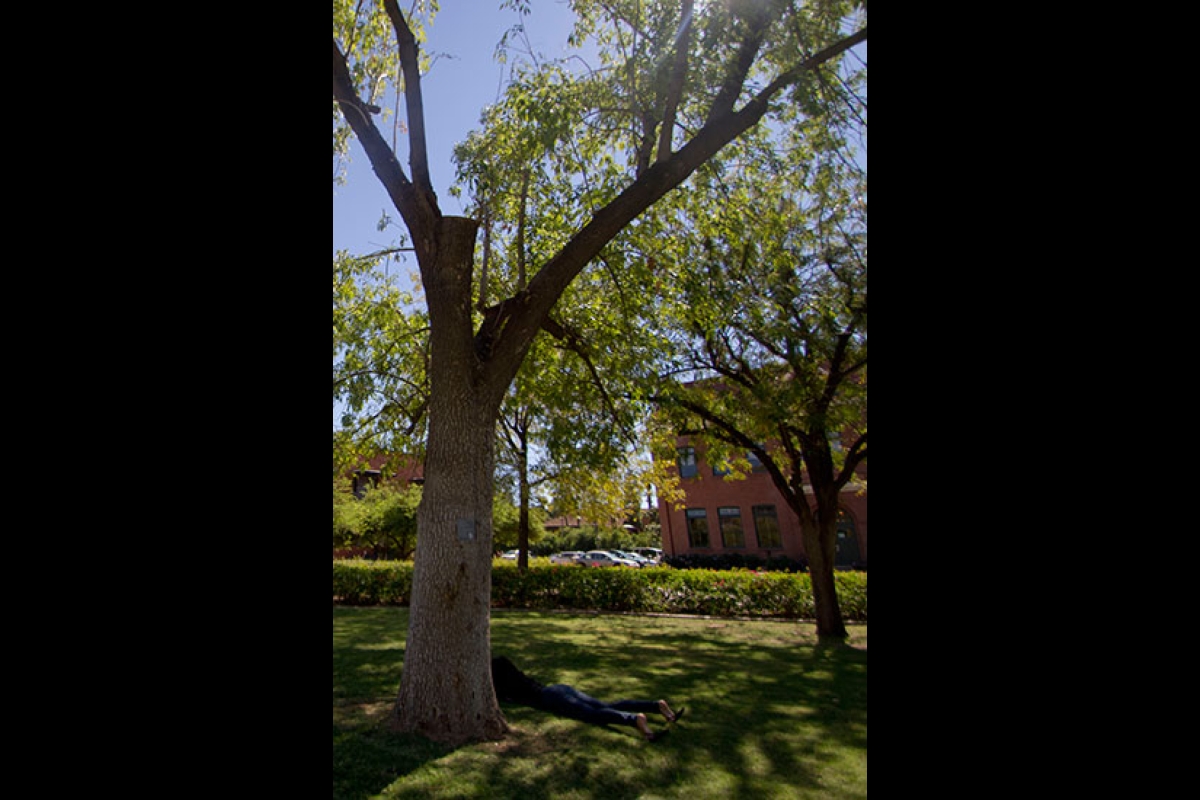
One of the most popular types of tree at ASU is the shamel ash. There are many on campus because they provide much needed shade.

Some of ASU’s trees have been donated to the school. This river bushwillow was donated by the Boyce Thompson Arboretum.
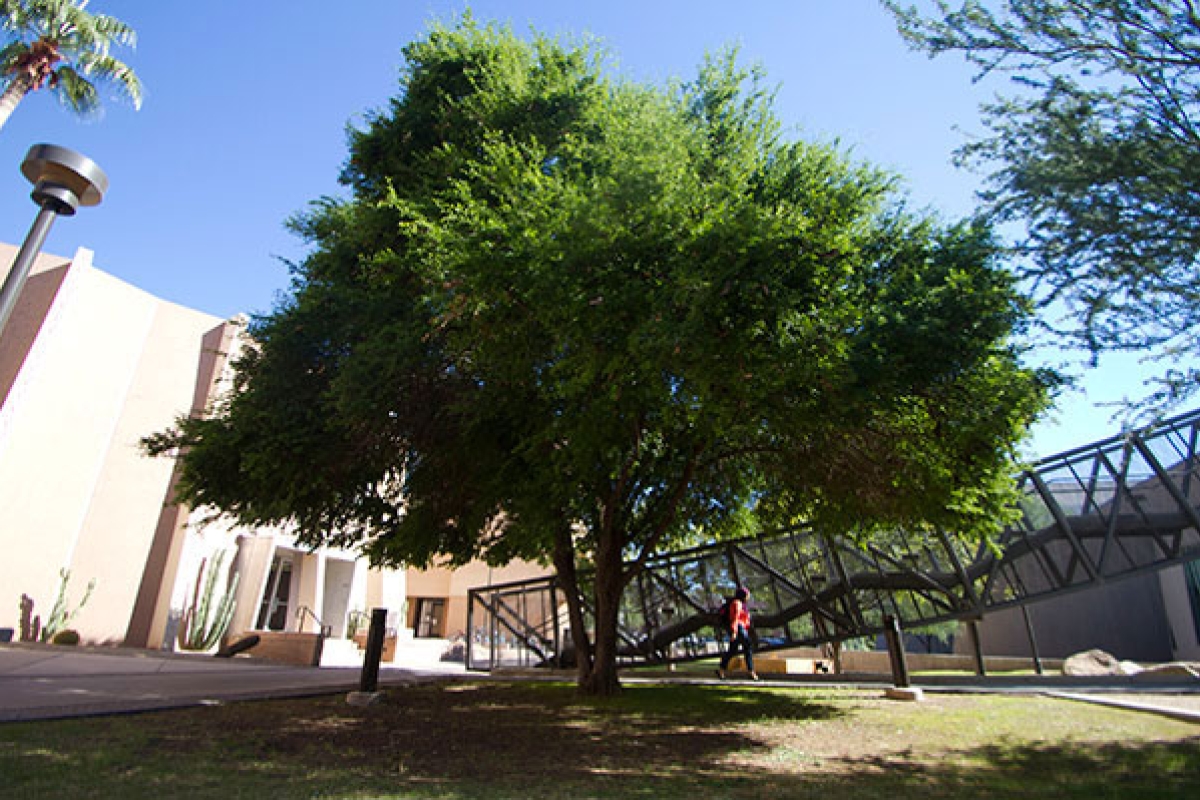
This ironwood tree was planted in March 1994 by a group of students to honor their late professor, John P. Morris, the first African-American faculty member in the College of Law.
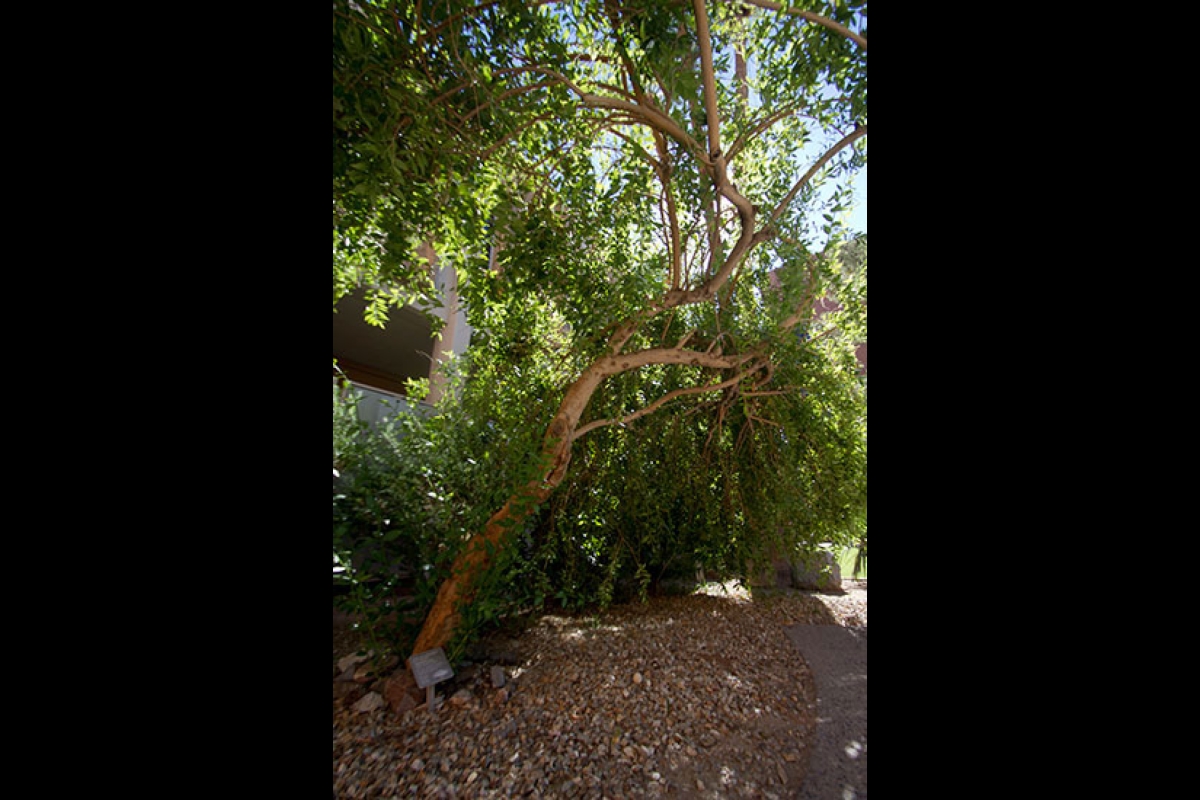
ASU's collection of trees is diverse. This is the Myrcianthes cisplatensis, a tree planted by retired professor L. R. Landrum from seeds he brought to campus from Uruguay. It is one of the only such specimens in the United States.
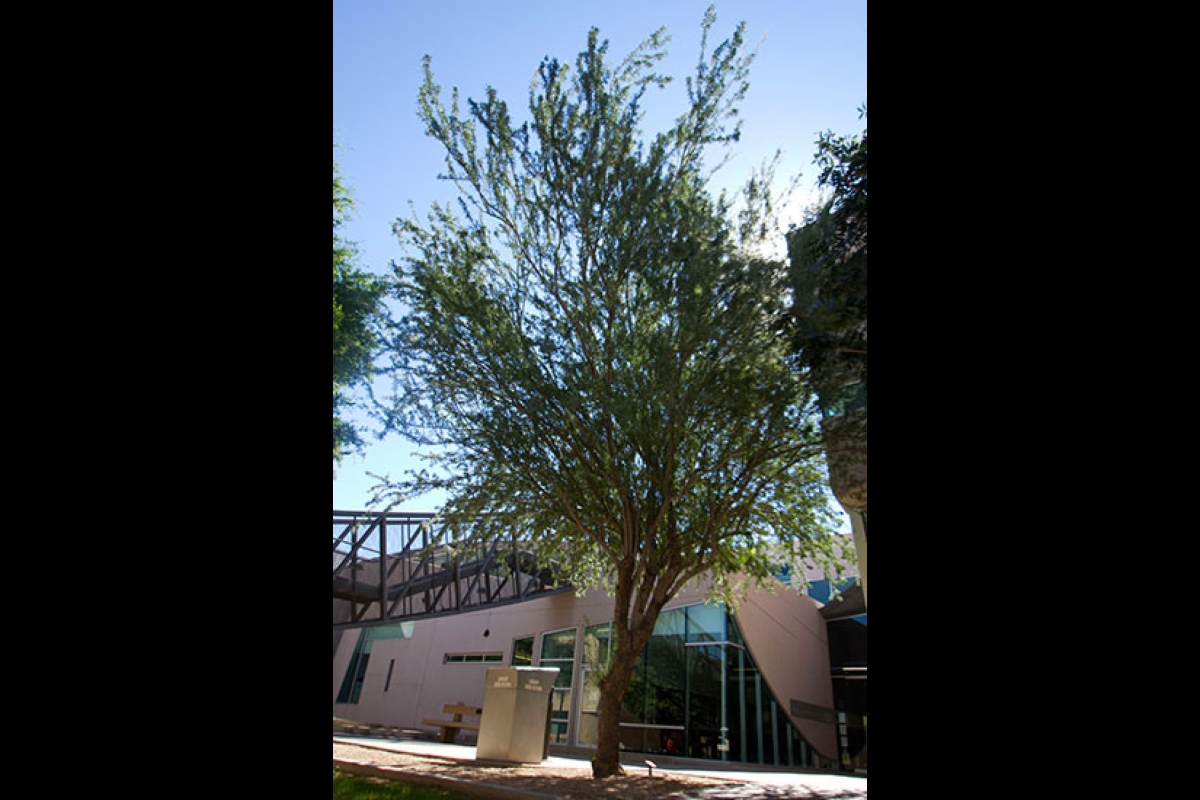
This Texas ebony tree is located outside of Armstrong Hall.
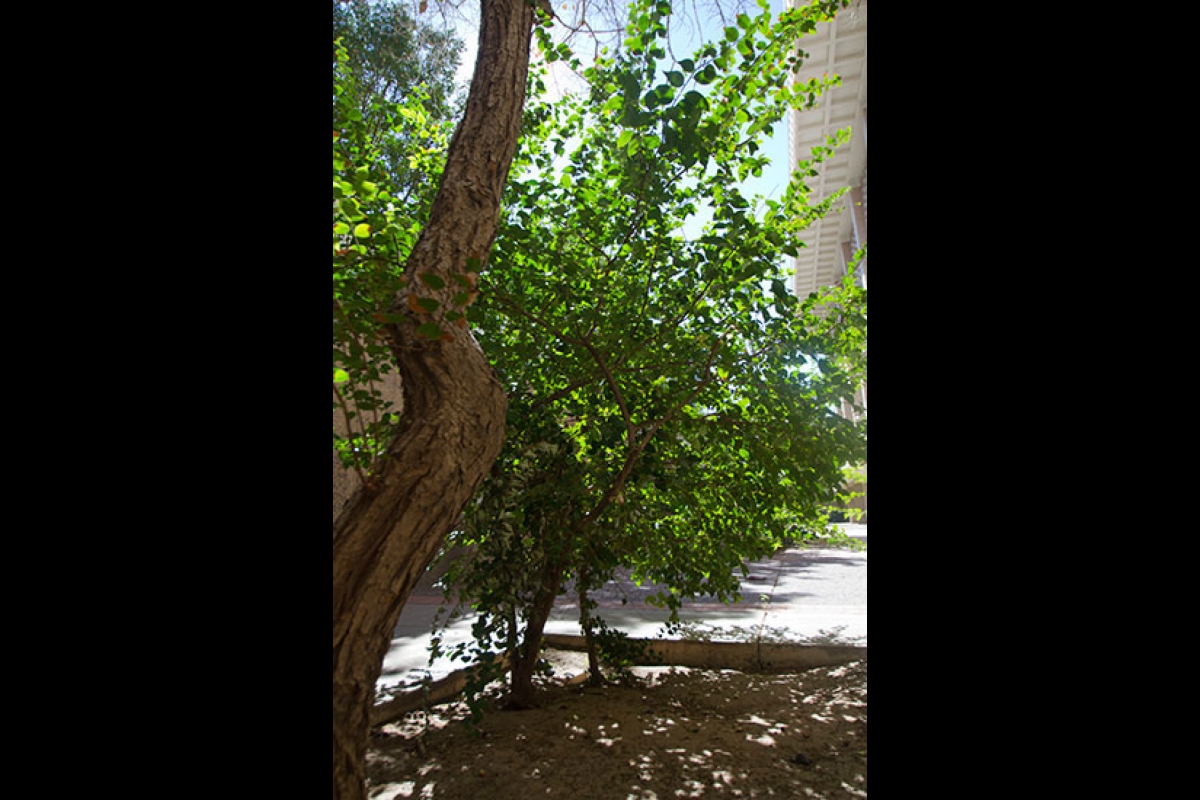
Next to this shoestring acacia tree sits a Japanese garden that is filled with exotic plants. “We have a diverse collection and representation, so we have trees from around the world,” said Deborah Thirkhill, the arboretum program coordinator at ASU.
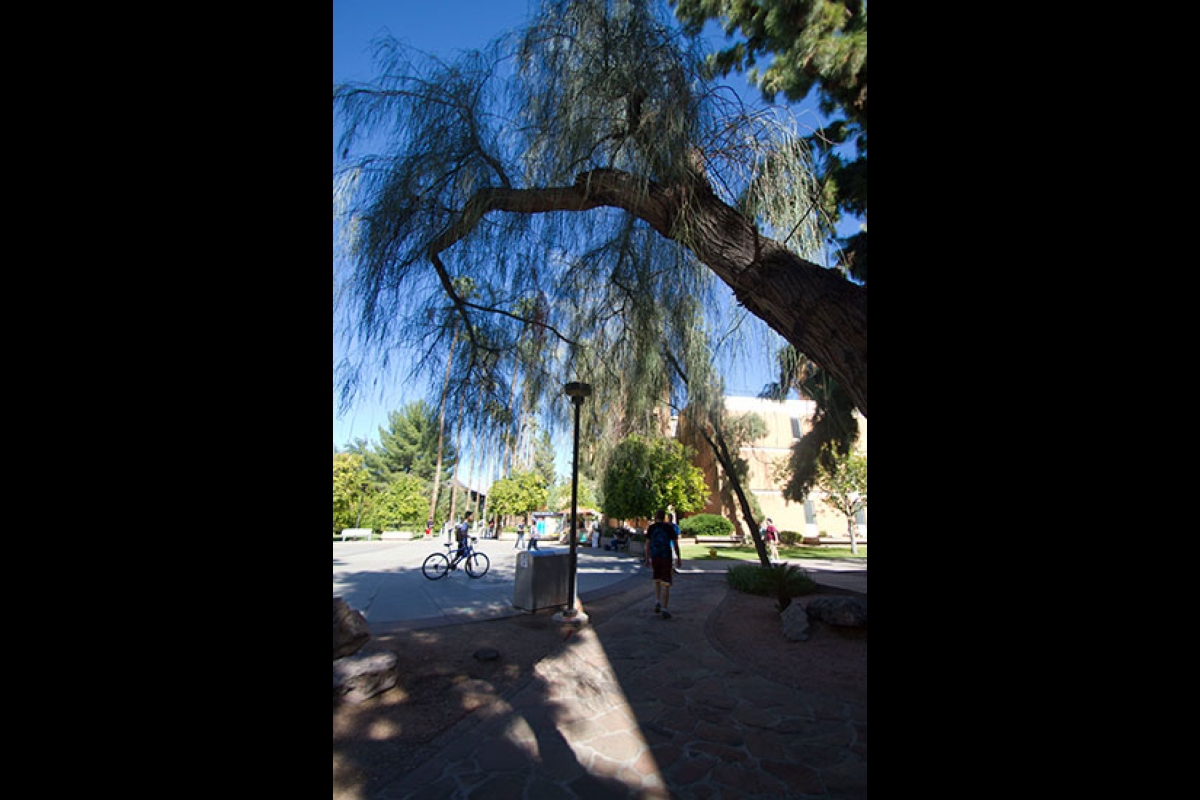
Located in front of the A. J. Matthews Center is an Italian stone pine that was planted on Earth Day in 1991.
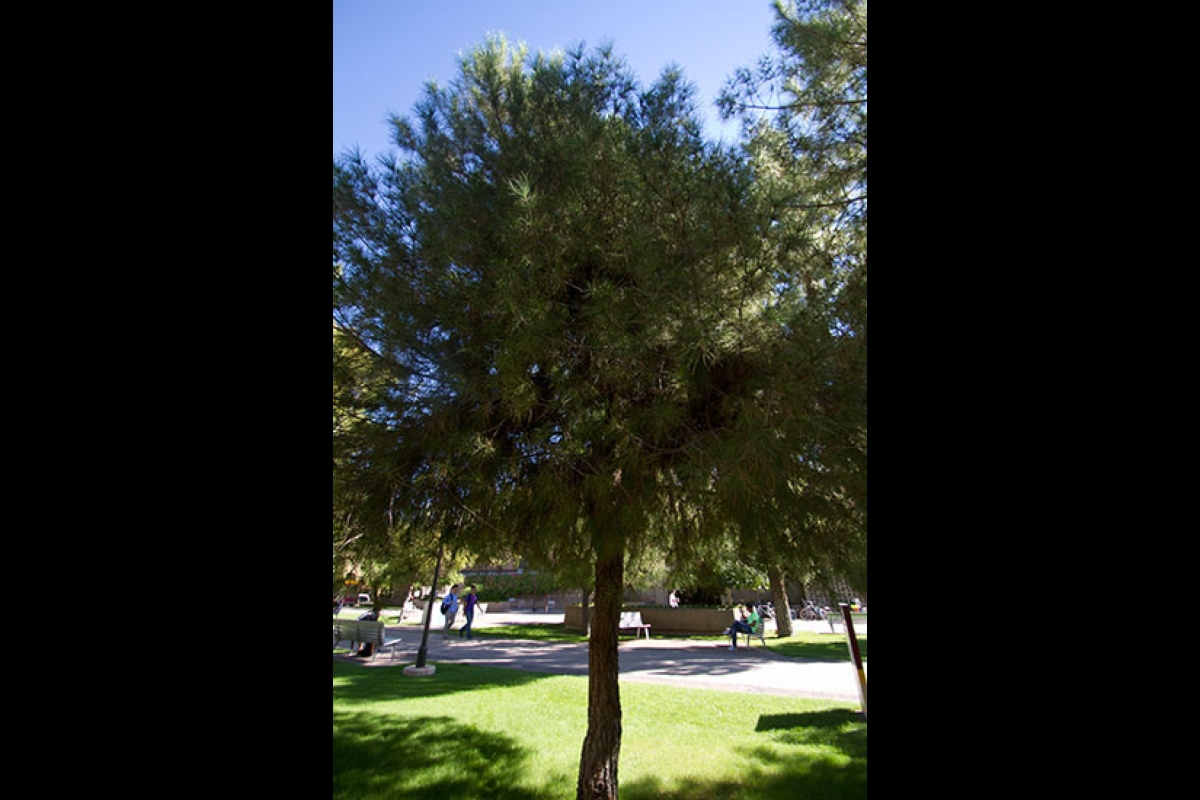
This weeping juniper tree is located at the intersection of Orange and Cady malls on the Tempe campus.

This Arizona cypress has been around since 1910 – making it one of the oldest on campus.